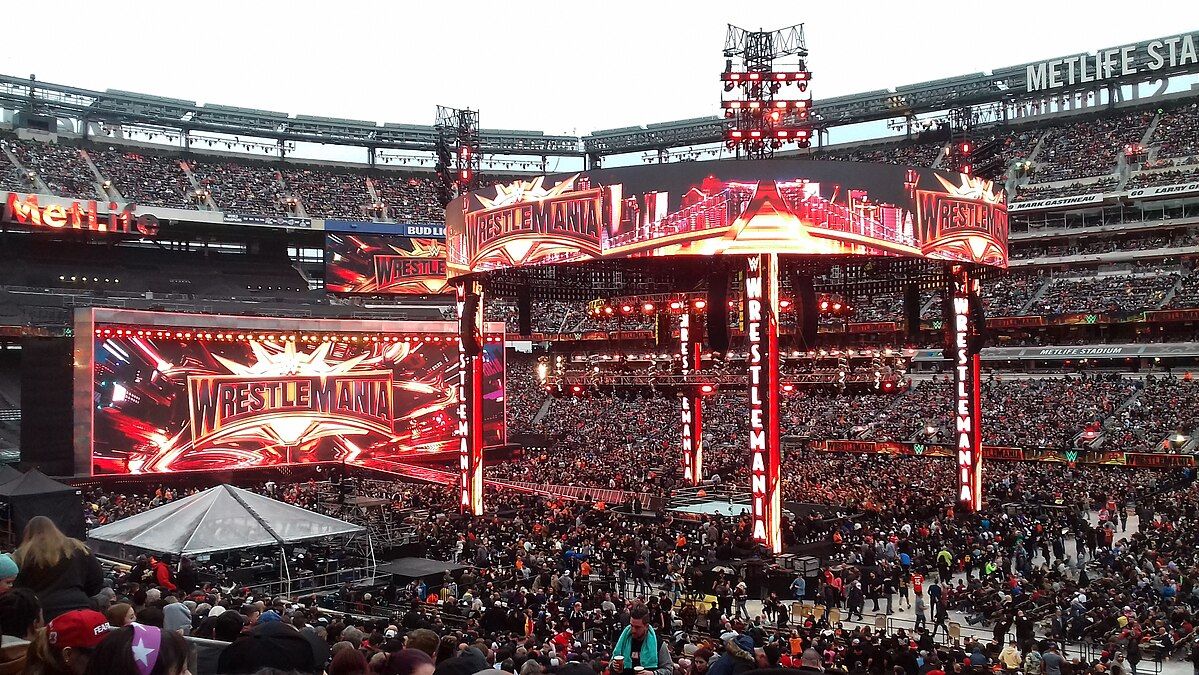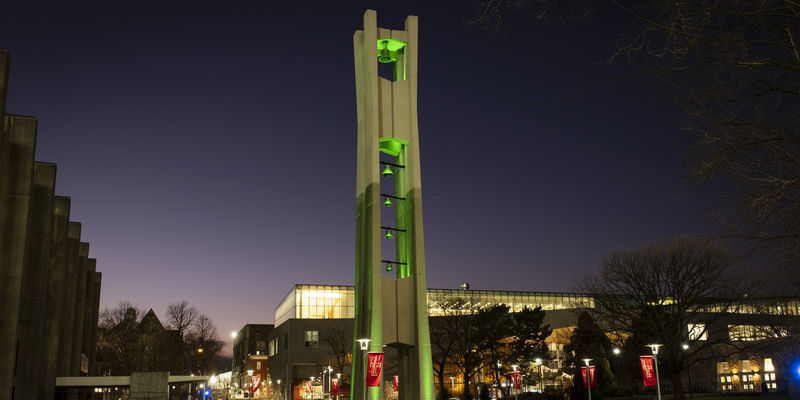As WrestleMania comes to Philly, how does the economy stand to benefit?
While WrestleMania is sure to be a fascinating entertainment spectacle, Temple University Professor of Economics Michael Leeds explains why economic impact is not as large as one might think.

This weekend, thousands of fans will flock to Philadelphia’s Lincoln Financial Field for two days to witness World Wrestling Entertainment’s (WWE) annual spectacle, WrestleMania. It is the first time that WWE’s keystone event has emanated from the City of Brotherly Love since 1999.
Last year, WWE estimated that the event generated $215 million in economic impact for the Los Angeles region. That comes just one year after the event reportedly generated $206.5 million in economic impact for the Dallas/Arlington region.
Philadelphia seems to be due for a big economic boost, right? Not exactly.
“A friend of mine likes to say that the people who are brought in to provide these studies are very, very meticulous and very, very careful and exact in terms of the numbers they compute, but unfortunately they put the decimal places in the wrong spot,” said Michael Leeds, a professor of economics at Temple University’s College of Liberal Arts whose research focuses on the economic impact of large-scale events like WrestleMania. “The actual economic input is much more likely to be a small fraction of what they say.”
In addition to his expertise in the economic impact of large-scale sporting events, Leeds is an expert in sports economics, labor economics and applied microeconomics. His research has appeared in such journals as the Journal of Urban Economics, Economic Inquiry, Social Science Quarterly and the Journal of Sports Economics. He is also coauthor of The Economics of Sports and coeditor of the Handbook on the Economics of Women in Sports.
Temple Now recently caught up with Leeds to discuss just how clotheslines and body slams will make for a fun weekend but won’t drastically impact Philadelphia’s bottom line.
Temple Now: WrestleMania is this weekend, and I have read that it is projected to have a similar economic impact to what we saw last year in Los Angeles. Is that accurate?
 Michael Leeds: With these studies, they will say that each person who comes to these events spends a certain amount of time in the city. And each day they spend in the city, they then spend a certain amount of money. They spend this many days on average, and then they spend this much money on average. The problem is that it makes no sense.
Michael Leeds: With these studies, they will say that each person who comes to these events spends a certain amount of time in the city. And each day they spend in the city, they then spend a certain amount of money. They spend this many days on average, and then they spend this much money on average. The problem is that it makes no sense.
Let’s say you have 150,000 people attending an event like this, and then a third of them are local. So that’s taking 50,000 people off the top, and the money they spend on WrestleMania is money they would have spent elsewhere in the local economy. Instead of them spending $1,300, which is around what each person needs to spend on average to get you from 150,000 to $200 million, they’re then spending $0. Now, let’s say a third of them are from the regional area, not the immediate area, so they can make it a day trip out of this. So, they’re not spending money in hotels, and they’re not having three meals per day. Then, perhaps we can say that a third of them, which is probably being generous, are coming from out of town to spend money at the event. There is still an economic impact, but you can see that it’s wildly exaggerated.
TN: Earning the rights to host an event like WrestleMania is no small feat for a city like Philadelphia, as it required that the city bid for the event. Knowing that, how does it play into the economic impact of all this?
ML: In one of my sport economics classes, I just finished a lesson on something called the winner’s curse. And the idea behind this is that when you auction off something of uncertain value, the winning bid is generally greater than the value of the thing being auctioned. I have done experiments with this in my sports class where I will bring in a jar full of paper clips that I have very carefully counted, and I will have a department administrator testify and write out the total of how many paper clips are in the jar. And say, I’m going to auction this off, and I will give the winner a nickel for every paperclip in the jar. Almost invariably, the winning bid is for more money than they will get back from me.
This is something that happens with oil leases in the Gulf of Mexico, it’s something that happens with free agents in sports, and it’s something that happens with cities that are bidding to host a sports team or a major event like WrestleMania.
TN: What about the tourism factor? Even if the economic impact of WrestleMania is not as large as it’s touted to be, it is good to bring some new folks to Philadelphia, right?
ML: As I mentioned, there is some economic impact for folks coming here from out of town, but one of the big things with tourism is word of mouth. People who come here are going to go home, and when they go home, they are going to talk about this one-time event. They’re not going to talk about the Liberty Bell. They’re not going to talk about the Philadelphia Zoo. They’re not going to talk about Longwood Gardens. And those are the things that are going to draw someone here consistently, so that’s the downside here. Yes, there is a boost, albeit an exaggerated one. However, it is not going to have legs, and it is not going to have a lasting impact.


